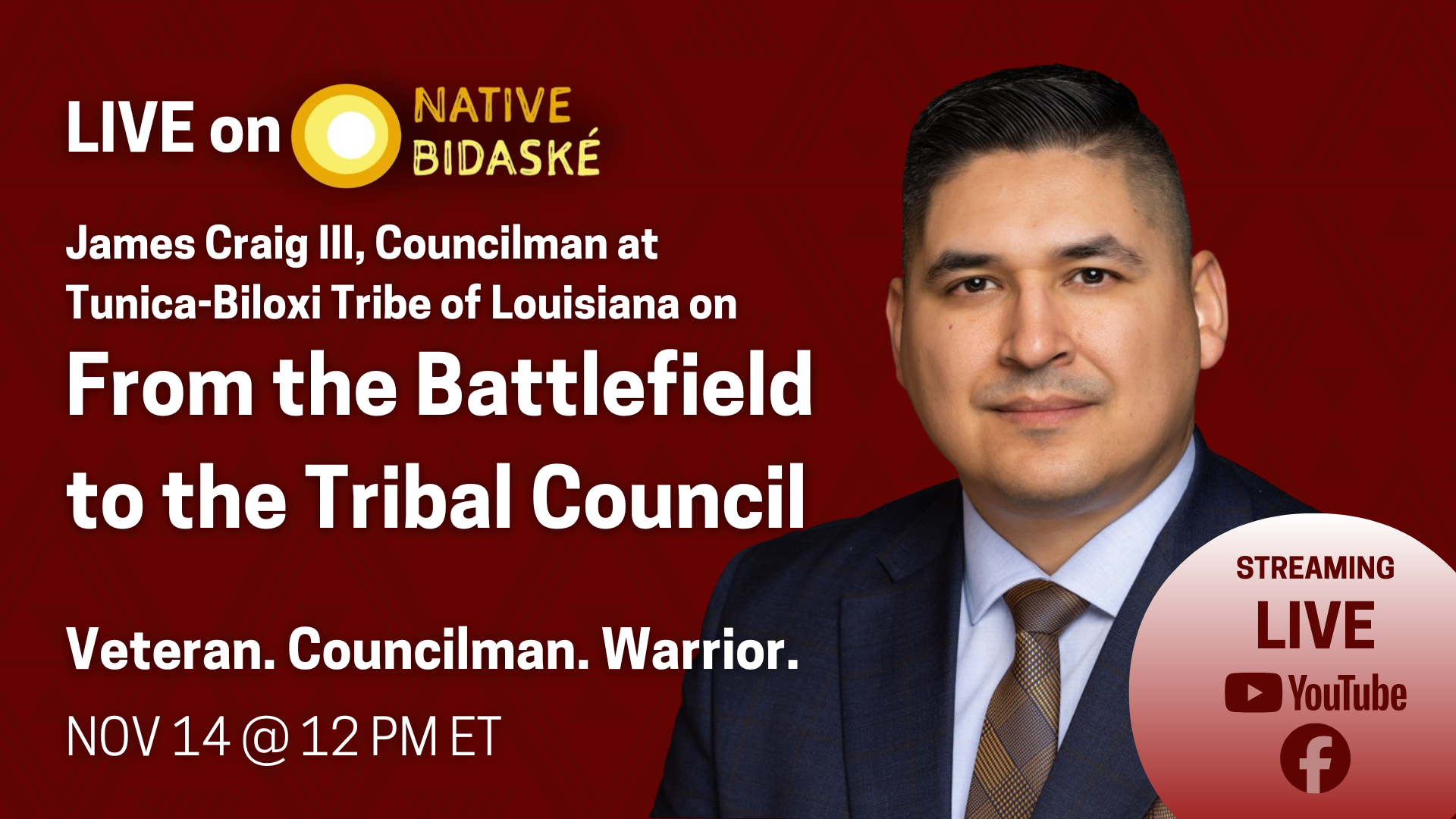
- Details
- By Native StoryLab
For many Native Americans, the call to serve runs deeper than duty; it’s a continuation of a warrior tradition that stretches back generations. On this week’s Native Bidaské, airing Friday, November 14, host Levi Rickert sits down with James Craig III, a veteran and tribal council member of the Tunica-Biloxi Tribe of Louisiana, whose story bridges the frontlines of global conflict and the heart of tribal leadership at home.
Craig’s journey began with deployments to Iraq and Afghanistan, where he served with distinction before transitioning into intelligence operations. But even after leaving the battlefield, he says, the mission didn’t end. For Craig, service evolved from defending the nation abroad to strengthening his tribal nation at home.
Beyond his work as a veteran advocate, Craig now serves his tribe as a council member, where he applies the same discipline and leadership he learned in the military to tribal governance. He emphasized that leadership, in both arenas, comes down to responsibility, showing up for the people, and ensuring the next generation has opportunities to thrive.
Through his story, James Craig III reminds us that the warrior’s path doesn’t end with service—it transforms. Whether on the battlefield or in the council chambers, the call to protect, lead, and heal remains the same.
👉 Join us for this conversation on Native Bidaské
Date: Friday, November 14th, 2025
Time: 12:00 p.m. ET / 11:00 a.m. CT / 10:00 a.m. MT / 9:00 a.m. PT
Streaming on: Facebook, YouTube, and the Native News Online website
Help us defend tribal sovereignty.
At Native News Online, our mission is rooted in telling the stories that strengthen sovereignty and uplift Indigenous voices — not just at year’s end, but every single day.
Because of your generosity last year, we were able to keep our reporters on the ground in tribal communities, at national gatherings and in the halls of Congress — covering the issues that matter most to Indian Country: sovereignty, culture, education, health and economic opportunity.
That support sustained us through a tough year in 2025. Now, as we look to the year ahead, we need your help right now to ensure warrior journalism remains strong — reporting that defends tribal sovereignty, amplifies Native truth, and holds power accountable.
 The stakes couldn't be higher. Your support keeps Native voices heard, Native stories told and Native sovereignty defended.
The stakes couldn't be higher. Your support keeps Native voices heard, Native stories told and Native sovereignty defended.
Stand with Warrior Journalism today.
Levi Rickert (Potawatomi), Editor & Publisher
